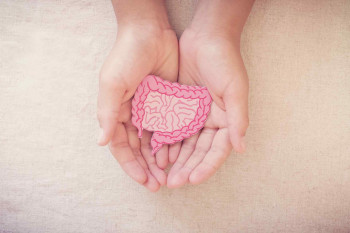The Science of Sleep: Unveiling Secrets for a Restful Night's Sleep
Welcome to a journey of unraveling the secrets behind restful sleep. In this blog, we explore the science of sleep and provide valuable insights for achieving a peaceful night's rest.
Join us as we delve into the vital role of sleep and share effective solutions for improving your sleep quality.
Understanding the Importance of Sleep:
The Vital Role of Sleep:
Sleep plays a crucial role in our physical and mental well-being. It supports cellular repair, hormone regulation, immune function, memory consolidation, and cognitive processes. Adequate sleep is essential for overall optimal health.
Health Benefits of Quality Sleep:
Quality sleep enhances cognitive function, boosts mood, fosters creativity, improves learning and memory, and strengthens the immune system. It also helps maintain a healthy weight, reduces the risk of chronic conditions, and promotes overall well-being.
Consequences of Sleep Deprivation:
Lack of sleep can lead to impaired cognitive performance, poor judgment, increased accidents, mood disturbances, weakened immune system, weight gain, and a higher risk of developing chronic conditions and mental health disorders. Prioritizing quality sleep is crucial for maintaining a healthy and balanced life.
Sleep Architecture: Stages of Sleep:
Non-REM Sleep:
Non-rapid eye movement (NREM) sleep consists of three stages: transitional sleep, light sleep, and deep sleep. Each stage plays a unique role in the restoration and maintenance of physical health.
REM Sleep:
Rapid eye movement (REM) sleep, also known as the dreaming phase, is characterized by high brain activity and vivid dreams. REM sleep is essential for emotional processing and memory consolidation.
The Circadian Rhythm: Your Internal Sleep-Wake Cycle:
Definition and Regulation:
The circadian rhythm is an internal biological clock that regulates our sleep-wake cycle. Light exposure and the release of the hormone melatonin play a significant role in regulating this cycle.
Melatonin: The Sleep Hormone:
Melatonin, produced by the pineal gland, helps regulate our sleep-wake cycle. Its levels rise in the evening, signaling the body to prepare for sleep. Exposure to bright light suppresses melatonin production, while darkness stimulates its release.
External Influences on the Circadian Rhythm:
Factors such as light exposure, irregular sleep schedules, shift work, and travel across time zones can disrupt the circadian rhythm. Managing these external influences can help maintain a healthy sleep-wake cycle.
Sleep Disorders: Causes and Solutions:
Insomnia:
Insomnia can be caused by various factors, including stress, anxiety, medications, and lifestyle choices. Effective solutions for managing insomnia include establishing a consistent sleep routine, creating a sleep-friendly environment, and adopting relaxation techniques.
Sleep Apnea:
Sleep apnea, characterized by breathing interruptions during sleep, can have severe health consequences. Treatment options include continuous positive airway pressure (CPAP) therapy, lifestyle modifications, and, in some cases, surgery.
Restless Leg Syndrome:
Restless leg syndrome causes uncomfortable sensations and an irresistible urge to move the legs, often disrupting sleep. Lifestyle changes, such as regular exercise and avoiding triggers, can help manage this condition.
Creating a Sleep-Friendly Environment:
The Role of Light and Darkness:
Minimizing exposure to bright light before bed and creating a dark and soothing sleep environment can promote healthy sleep. Avoiding electronic devices and using blackout curtains can support a more natural sleep-wake cycle.
Optimal Bedroom Conditions:
Ensuring a comfortable sleep environment includes choosing a suitable mattress and pillow, maintaining an appropriate room temperature, optimizing ventilation, and reducing clutter to create a calming atmosphere.
Noise Reduction and Ambient Sounds:
Reducing noise disruptions and incorporating soothing ambient sounds, such as white noise or calming music, can mask disturbing noises and promote relaxation.
Sleep Hygiene: Habits for a Restful Night's Sleep:
Consistent Sleep Schedule:
Maintaining a regular sleep schedule, including consistent bedtimes and wake times, helps regulate the body's internal clock and improve sleep quality.
Wind-Down Routine:
Establishing a relaxing pre-sleep routine signals the body that it's time to unwind. Activities like reading, taking a warm bath, and practicing relaxation techniques can promote a peaceful transition to sleep.
Healthy Lifestyle Choices:
Engaging in regular exercise, adopting a balanced diet, avoiding caffeine close to bedtime, and limiting electronic device usage before sleep contribute to better sleep quality.
Seeking Professional Help: AINS Apex Institute of Neuro Spine:
Expertise in Sleep Medicine:
AINS Apex Institute of Neuro Spine comprises experts specializing in sleep medicine. They stay up-to-date with the latest advancements and provide comprehensive care for sleep-related issues.
Diagnosis and Treatment Options:
Accurate diagnosis of sleep disorders is crucial. AINS Apex Institute of Neuro Spine offers various diagnostic techniques and personalized treatment options tailored to individual needs.
Personalized Care for Optimal Sleep Health:
AINS Apex Institute of Neuro Spine emphasizes personalized care to optimize sleep health and overall well-being. The team takes a holistic approach, considering individual requirements and providing tailored treatment plans.
Conclusion:
Understanding the science of sleep is essential for achieving restful nights. Prioritizing quality sleep can enhance overall health and well-being.
Implementing the insights shared in this blog, along with seeking professional assistance when needed, can lead to a rejuvenating and restorative sleep experience.

























